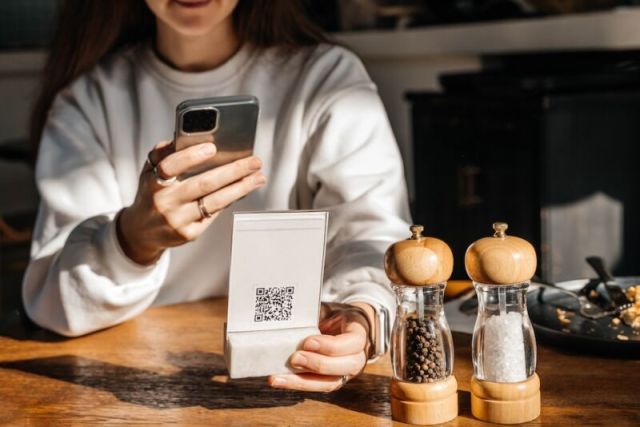
Enlarge / A woman scans a QR code in a café to see the menu online.
The US Federal Trade Commission has become the latest organization to warn against the growing use of QR codes in scams that attempt to take control of smartphones, make fraudulent charges, or obtain personal information.
Short for quick response codes, QR codes are two-dimensional bar codes that automatically open a Web browser or app when they’re scanned using a phone camera. Restaurants, parking garages, merchants, and charities display them to make it easy for people to open online menus or to make online payments. QR codes are also used in security-sensitive contexts. YouTube, Apple TV, and dozens of other TV apps, for instance, allow someone to sign into their account by scanning a QR code displayed on the screen. The code opens a page on a browser or app of the phone, where the account password is already stored. Once open, the page authenticates the same account to be opened on the TV app. Two-factor authentication apps provide a similar flow using QR codes when enrolling a new account.
The ubiquity of QR codes and the trust placed in them hasn’t been lost on scammers, however. For more than two years now, parking lot kiosks that allow people to make payments through their phones have been a favorite target. Scammers paste QR codes over the legitimate ones. The scam QR codes lead to look-alike sites that funnel funds to fraudulent accounts rather than the ones controlled by the parking garage.